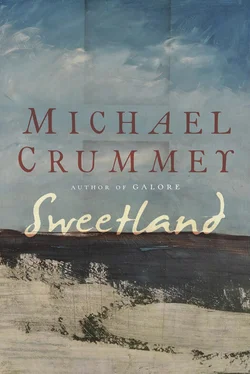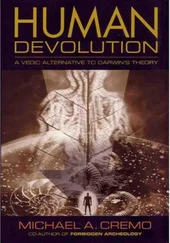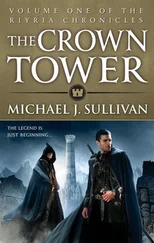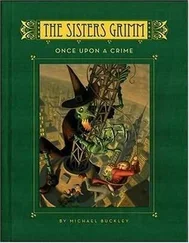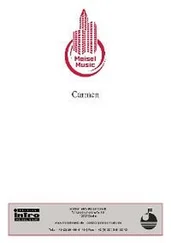He almost asked her to sit down then. He’d never spent more than the length of a haircut alone with her but he’d always enjoyed the razor wire of her company — her epically foul mouth, her gumption, her raw savvy. She walked across to the table and sat before he offered, though she left the soaked hood up.
“I been elected to have a talk with you,” she said.
“Who did you beat out for that job?”
“Acclamation,” she said with a rueful smile.
“Democracy in action.” Sweetland spread his hands on the tabletop.
“You know Loveless is going to give in,” she said. “Sooner or later.”
He shrugged and looked away. “There’s still Queenie,” he said.
“She’ve never showed her face at the Hall to say she’s against this. And Hayward have signed the papers. So it’s all coming down to you, Moses.”
He spread his hands again, to say So be it .
“The question I’m supposed to have answered is, What’s it going to take to bring you on board?”
“You got nothing I’m interested in.”
“No,” she said, and she shook a finger at him out of the cuff of her hoodie. “No fucking way. You are not going to hold this up because of your Christly feelings, Moses. Now you name your price and I’ll see what I can do to get it paid.”
“Not for sale,” he said.
She shook her head. “Jesus,” she said. “You thinks you’re doing God’s work, is that it?”
Sweetland half smiled, thinking she was making a joke.
“I can’t figure what else is in your mind,” she said. “To cause so much grief to the whole goddamn town and be able to sleep at night.”
She wasn’t about to leave without having a racket, he realized, and he got up to walk by her, took his jacket down off a nail in the porch.
“You thinks this will all go away if you ignores it long enough,” she said. “But it won’t.”
“That’s a threat, is it?”
“That’s a simple fact. People got too much on the line to just let it drop.”
“Now that sounds like a threat.”
She shook her head again but didn’t turn to him. Her face hidden by the hood. “Someone is going to end up getting hurt in all this,” she said. “And you’ll have no one but yourself and God to blame for it. You mark my words.”
He let himself out the door and pushed it to behind him, hid out in the shed then until he was sure Reet had left. He put in a fire and opened the main doors, the air smelling of wet hay and woodsmoke. He spent the better part of the day working in the bay of the shed, replacing the floor of the trailer he’d built for the quad twenty years before. All the while turning Reet’s accusation over in his head. God’s work , she said, trying to goad him into talking. Everyone but Duke was after Sweetland to explain himself these days, to offer a rationale for his refusal to leave. He’d tried to parse out an argument in his head for awhile, but every attempt to name what he was holding onto made it seem small, almost ridiculous.
Ruthie had always said any woman crazy enough to marry Sweetland would shoot him dead in the end. It was his reticence she was talking about, his bullheaded diffidence. He could admit to hardly knowing why he felt a particular way about anything. The stronger the feeling, the less able he was to break it down into identifiable categories, into cause and effect. But he wasn’t accustomed to being called out for the lack and it served only to make him increasingly close-mouthed and obstinate. His conviction more firmly anchored as the holdouts dwindled, as if to offset the loss in numbers with a blind certainty.
He found himself enjoying it almost, to be the one knot they couldn’t untangle. Holding on like grim death and halfways invigorated by the effort. Twisted, Ruthie used to say of him, and Sweetland couldn’t argue her assessment. Or change his way in the world.
He finished the job by mid-afternoon, washed up at the kitchen sink and walked the path to Duke’s shop. The rain coming down in sheets. Wince Pilgrim was sitting beside the chessboard, Duke facing him in the barber’s chair, one insect leg hooked over the arm.
“Look what the wind blew in,” Duke said.
Pilgrim lifted his face to the ceiling, listening. The blind eyes glaucous, murky as a fog. “That’s Moses, is it?”
“The man himself.”
“Jesse idn’t with you?” Sweetland asked.
“Clara got him doing his homework up to the house,” Pilgrim said.
Jesse used to spend an hour at the barbershop every day after school, but Clara seemed to be making an effort to wean him off his island habits. Or maybe it was meant to punish Sweetland. He’d walked down expecting to see the boy and was almost sorry to have come now. He wrestled out of his wet jacket, shook it twice before hanging it on the coat rack. He walked across to stand by the heat of the stove, Pilgrim’s head turning to follow his footsteps. There was a kettle on the floor by the woodbox and Sweetland filled it in the corner sink.
A figure flicked past the window and the door pushed open, the weather scurrying in just ahead of the Reverend. He turned quickly and slammed the door, leaning against it like he was trying to bar a rabid animal outside. “Mercy,” he said.
“Is that you, Reverend?” Pilgrim asked.
“That’s some day out there now,” the Reverend said.
Duke climbed out of the chair in sections, swiped at the worn leather with a towel. “Have a seat,” he said. “Moses just got the kettle on.”
“I’ll sit by the board.”
“That’s what you won’t,” Duke said. “Seat of honour.”
“The first shall be last,” the Reverend said. “The last shall be first. You know how that goes.” And he sat in the wooden chair across the board from Pilgrim.
“I thought you was retired of all that business,” Sweetland said.
The Reverend laughed. “A man of the cloth,” he said. “Practising or no.”
He was dressed in black slacks, a black suit coat, and white shirt buttoned to the throat under his jacket. He sat with his hands folded in his lap, clean-shaven and his white hair oiled back from his forehead. He looked like someone keeping a body company at a wake. The man’s business like a stain and no way on God’s earth to scour it out now it had set.
“You’ll have a cup?” Duke asked.
“I wouldn’t say no.”
The Reverend was Welsh by birth and had moved to Canada as a student. He was assigned a Newfoundland parish in his early twenties and got married there, he and his wife taking on churches in half a dozen Newfoundland communities over the next forty-five years. He’d come to Sweetland in the seventies and extended his appointment two or three times over, though his wife agitated against it more publicly as time passed. The Reverend was heartbroken to leave when he did, everyone remarked on it.
Sweetland said, “What have I got to work with there?”
The Reverend glanced down at the chess board. He never participated in a game, but he liked to watch its progress, offering advice and suggestions.
“Everyone but Moses have washed their hands of it,” Duke said. “They’re after me to start a new one up.”
“I’m still thinking on it,” Sweetland said.
“I got half a mind to put you on a clock.”
“I could say a prayer for you,” the Reverend offered.
“Save it for No Chance Cove,” Duke said.
Sweetland was about to say something in response but thought better of it, for the company.
The church on the point was closed up when the Reverend moved back to Sweetland seven years ago, widowed and retired from preaching. He bought an empty house out behind the church and spent most of his time reading and meandering along the island paths. No one knew what to make of his return or quite how to take him. In his first months back, he made a habit of stopping by Sweetland’s shed on weekday mornings. He’d sit in one of the ripped vinyl kitchen chairs against the wall and waste hours of Sweetland’s time, listening to the open-line show on the portable radio above the workbench, passing a comment on one issue or other.
Читать дальше
